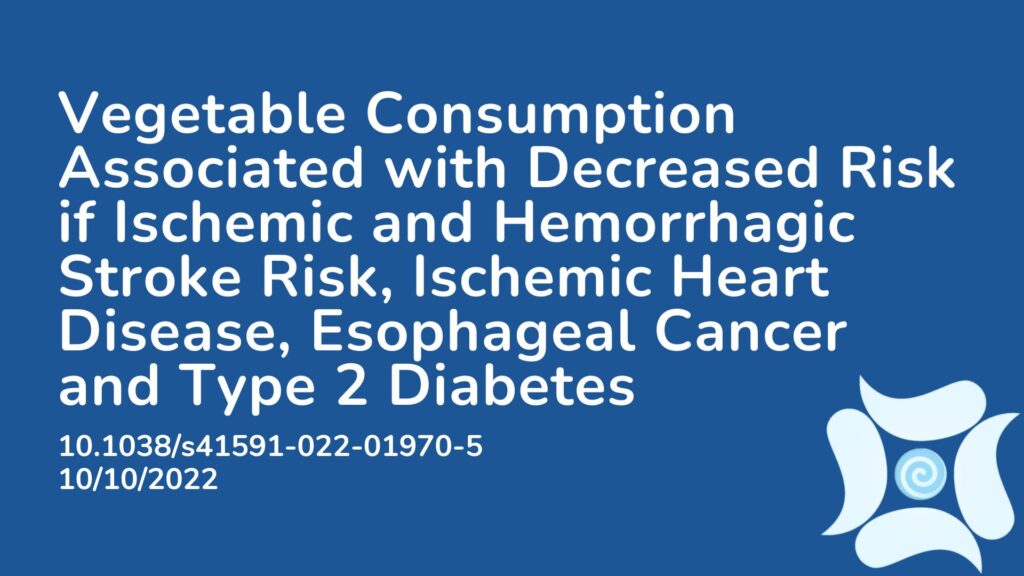Summary: An understanding of how vegetable consumption and overall nutrition is linked with adverse health outcomes is essential for guiding health policy as well as individual health choices. It is also critical to specifically elucidate which common life threatening conditions are less likely to occur if an individual increases their vegetable intake. This burden of proof study, which is an evaluation and summary of the current evidence related to risk, looked at the associations between vegetable consumption and ischemic heart disease, ischemic stroke, hemorrhagic stroke, esophageal cancer and type 2 diabetes. The results showed that all of the noted conditions are less likely to occur with increased vegetable consumption. Of these conditions, type 2 diabetes displayed the least significant impact, however still displayed 26.1% reduction in risk. For all of the listed conditions except esophageal cancer, the risk decreased much more drastically between no to low consumption of vegetables, as opposed to someone who is already consuming a moderate intake and then changes to a high intake.
Abstract:
Previous research suggests a protective effect of vegetable consumption against chronic disease, but the quality of evidence underlying those findings remains uncertain. We applied a Bayesian meta-regression tool to estimate the mean risk function and quantify the quality of evidence for associations between vegetable consumption and ischemic heart disease (IHD), ischemic stroke, hemorrhagic stroke, type 2 diabetes and esophageal cancer. Increasing from no vegetable consumption to the theoretical minimum risk exposure level (306–372 g daily) was associated with a 23.2% decline (95% uncertainty interval, including between-study heterogeneity: 16.4–29.4) in ischemic stroke risk; a 22.9% (13.6–31.3) decline in IHD risk; a 15.9% (1.7–28.1) decline in hemorrhagic stroke risk; a 28.5% (−0.02–51.4) decline in esophageal cancer risk; and a 26.1% (−3.6–48.3) decline in type 2 diabetes risk. We found statistically significant protective effects of vegetable consumption for ischemic stroke (three stars), IHD (two stars), hemorrhagic stroke (two stars) and esophageal cancer (two stars). Including between-study heterogeneity, we did not detect a significant association with type 2 diabetes, corresponding to a one-star rating. Although current evidence supports increased efforts and policies to promote vegetable consumption, remaining uncertainties suggest the need for continued research.
Article Publication Date: 10/10/2022
DOI: 10.1038/s41591-022-01970-5



